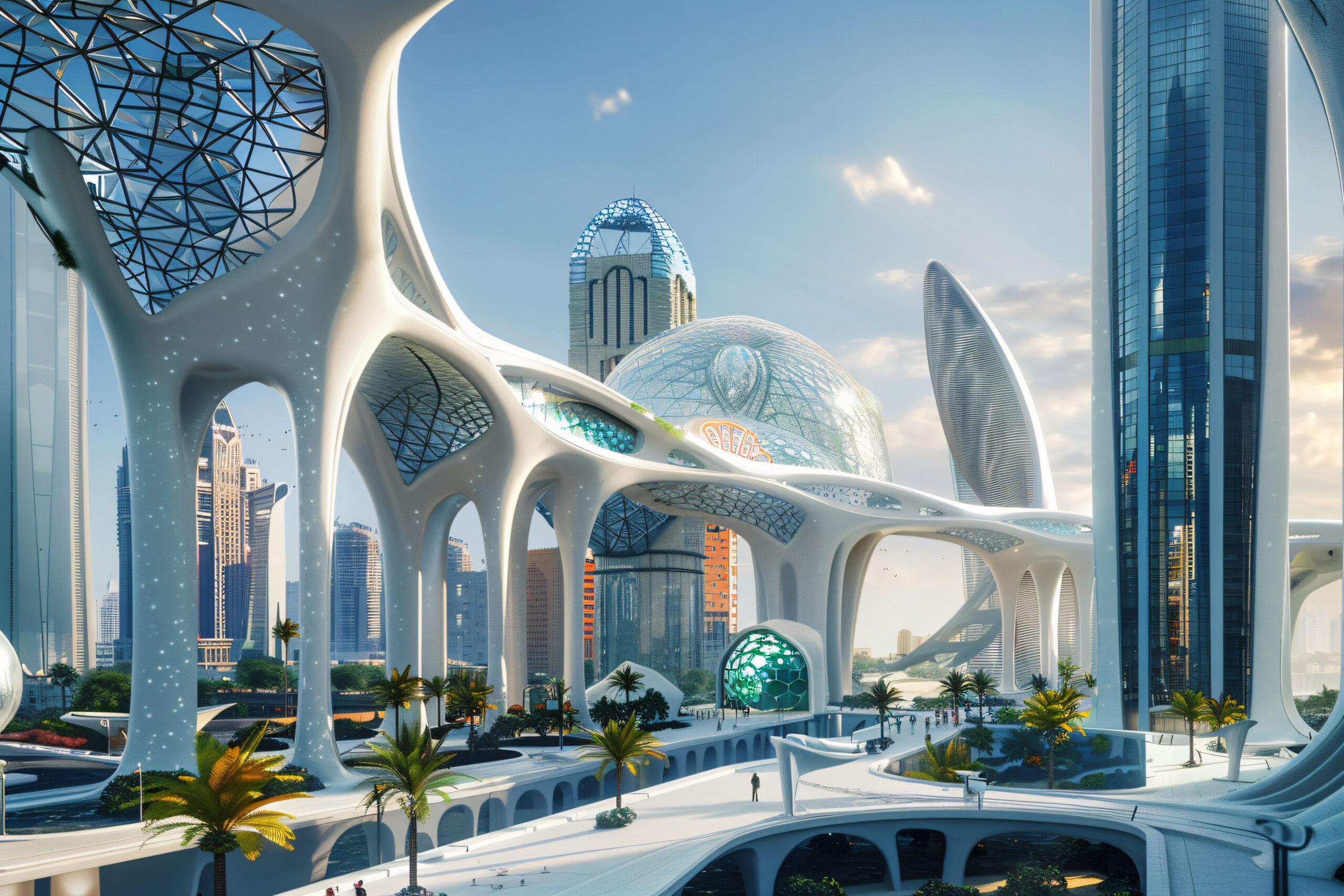Flydubai Partners With Boeing To Retrofit 21 Aircraft With Space Bins

In a significant move to enhance passenger experience and operational efficiency, Dubai-based airline flydubai has entered into a strategic agreement with aerospace giant Boeing. The announcement came during the prestigious Aircraft Interiors Expo (AIX), held in Hamburg, Germany, where industry leaders gather to unveil advancements in aviation interiors. The agreement focuses on retrofitting 21 of flydubai’s existing Boeing 737 MAX aircraft with the innovative Boeing Space Bins, a solution designed to expand overhead storage and optimize cabin layout. As airlines increasingly compete on comfort and convenience, this collaboration highlights flydubai’s forward-thinking approach to meet evolving customer expectations while maximizing aircraft functionality.
Enhancing the Passenger Journey With Space Bin Technology
The Boeing Space Bins are engineered to provide up to 50 percent more room for carry-on luggage compared to standard overhead bins. This improvement directly addresses one of the most common passenger complaints: lack of space for carry-on baggage. For flydubai, the decision to incorporate these bins into their current fleet is both a response to passenger feedback and a move aligned with industry trends prioritizing in-cabin convenience.
The retrofit process will take place in collaboration with Boeing and is set to begin later this year. Upon completion, passengers traveling on the updated 737 MAX aircraft will immediately notice the difference in available storage space, leading to quicker boarding times and a smoother overall experience. With travel demand rebounding across key international markets, flydubai’s initiative places the airline among a select group actively upgrading older aircraft with new-age interior enhancements rather than reserving such changes for new deliveries alone.
Boeing and Flydubai’s Ongoing Partnership
This retrofit agreement adds another layer to the growing partnership between flydubai and Boeing. The two companies have shared a close commercial relationship since flydubai’s inception in 2009. Boeing’s 737 family has formed the backbone of flydubai’s operations, allowing the airline to expand rapidly across the Middle East, Africa, Europe, and Asia. With over 80 destinations now in its network and a fleet of more than 80 aircraft, flydubai’s commitment to Boeing technology is central to its operational strategy.
In recent years, the airline has taken delivery of newer variants of the Boeing 737 MAX, a model recognized for its fuel efficiency, range capabilities, and updated passenger comfort features. This latest move to retrofit earlier MAX aircraft with Space Bins further demonstrates flydubai’s commitment to ensuring consistency across its fleet. It also reinforces Boeing’s position not just as a supplier of aircraft but as a long-term partner capable of delivering tailored solutions across a jet’s entire lifecycle.
Cabin Interiors: A Growing Area of Innovation
The announcement at AIX 2025 highlights a broader trend in the aviation industry. As passenger expectations evolve, airlines are increasingly focused on cabin design, seating comfort, lighting, and in-flight amenities. The move towards modular, upgradeable interiors means carriers can now retrofit cabins with innovations that once required the delivery of new aircraft.
Space Bins are part of Boeing’s broader initiative to reimagine aircraft interiors. These bins offer a more ergonomic design, can accommodate larger suitcases placed wheels-first, and help reduce the number of gate-checked bags. By investing in these bins, flydubai is not only improving the passenger journey but also streamlining turnaround times, which directly impact airline schedules and profitability.
With these enhancements, flydubai can also better serve its growing base of business and leisure travelers. The larger bins allow passengers to store their personal items within reach, thereby improving the comfort and efficiency of the in-flight experience. This commitment to customer-centric upgrades supports flydubai’s ambition to position itself as a premium budget carrier offering high-value services across its network.
Operational Efficiency Through Design Innovation
One of the biggest benefits of Space Bins, from an operational standpoint, is how they contribute to faster boarding and disembarking processes. With more space to store carry-on luggage, the chances of passengers searching for overhead room or needing to check bags at the last minute are significantly reduced. This results in quicker boarding times, fewer delays, and enhanced overall punctuality—key performance indicators for low-cost and hybrid carriers like flydubai.
Flydubai’s decision also speaks to its commitment to operational excellence. The airline is constantly exploring ways to improve efficiency, whether through aircraft utilization, turnaround time reduction, or cabin design optimization. Retrofitting the existing fleet is a cost-effective way to leverage technological improvements without investing in entirely new jets, thus striking a balance between innovation and financial prudence.
The Strategic Importance of the Aircraft Interiors Expo (AIX) Unveiling this agreement during the Aircraft Interiors Expo (AIX) underlines the event’s growing significance within the aviation industry. Held annually in Hamburg, AIX serves as the key global platform for showcasing the latest advancements in cabin interiors, in-flight entertainment, passenger services, and aviation comfort technologies. By choosing this venue, flydubai and Boeing were able to highlight their partnership on a global stage, demonstrating their shared commitment to cabin innovation.
The AIX event attracts hundreds of industry stakeholders, from aircraft manufacturers and interior suppliers to airlines and regulatory bodies. Announcements made during AIX often set the tone for the year ahead in terms of passenger experience trends and technological upgrades. For flydubai, revealing the retrofit plan at this platform ensured maximum visibility and positioned the airline as a leader in interior modernization initiatives.
Expanding Network, Evolving Needs Flydubai’s rapid network expansion has led to increased demand for cabin consistency across its fleet. As the airline serves destinations ranging from short regional hops to medium-haul international routes, it is essential to maintain a uniform standard of service and amenities. The Space Bin retrofit helps meet this goal by bringing older 737 MAX aircraft up to par with newer models.
Additionally, as flydubai grows its presence in premium and business travel segments, providing a reliable and comfortable cabin experience becomes even more critical. Frequent flyers are likely to notice improvements like increased baggage space, which directly correlates to better overall satisfaction scores. In an industry where word-of-mouth and repeat business are vital, such upgrades can serve as a competitive differentiator.
Sustainability and the Role of Efficient Retrofitting
While much of the sustainability conversation in aviation revolves around fuel efficiency and emissions, cabin retrofits like these also play a part in reducing environmental impact. By extending the lifespan of aircraft through interior upgrades, airlines can avoid the need to replace entire fleets prematurely. This reduces manufacturing and disposal footprints and contributes to a more circular economy within the aviation sector.
Flydubai’s approach shows that sustainability and customer service are not mutually exclusive. The airline has already invested in fuel-efficient aircraft and now complements those efforts by ensuring that interior spaces are equally modern and efficient. The Space Bins themselves are designed with lightweight materials, contributing to overall weight reduction and helping airlines maintain better fuel economy during operations.
Boeing’s Modular Solutions for Fleet Flexibility
The Boeing Space Bin retrofit represents just one aspect of Boeing’s broader focus on modular aircraft solutions. As airlines demand more flexibility from their fleets, Boeing continues to develop upgrades and retrofit packages that can be easily installed without requiring full-scale redesigns. These solutions help carriers manage aging fleets, adapt to new market conditions, and implement upgrades without major operational disruptions.
Boeing’s collaboration with flydubai in this area highlights the aerospace manufacturer’s capabilities beyond initial aircraft production. It underscores Boeing’s understanding of airline needs at every stage of aircraft ownership—from delivery to operation to long-term maintenance and modernization.
Looking Ahead: A Template for the Industry
Flydubai’s decision to retrofit 21 of its 737 MAX aircraft may set a precedent for other carriers looking to modernize existing fleets in a cost-effective way. As Space Bins become a standard feature on new aircraft, retrofitting older models ensures consistency and meets growing passenger expectations for space and comfort. With this move, flydubai has not only responded to current customer needs but also prepared itself for future growth in a highly competitive market.
The initiative stands as an example of how thoughtful investment in interior upgrades can deliver returns in customer satisfaction, operational efficiency, and brand reputation. Flydubai’s collaboration with Boeing reaffirms the airline’s commitment to innovation and excellence, positioning it as a modern carrier ready to meet the demands of today’s—and tomorrow’s—air travel landscape.







